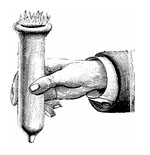
Can Thomism Save Science?
SCIENCE & CULTURE -- PART 2
Ed. Note: The first installment in this two-part series, titled “Is Scientism Winning?” appeared in the October issue.
In our initial article we raised this question: Is the Catholic community retreating from an engagement with science? Answering in the affirmative, we attributed the retreat to an inadequate understanding of the philosophical foundations of science and of knowledge as a whole. The breadth of the problem reveals how widespread and complete is the lack of principled understanding of the proper nature and role of science.
This problem is not new, nor is the identification of its cause. As a former professor visiting his former university in Regensburg, Germany, Pope Benedict XVI identified the crisis of reason as the root problem of the West. Human reason, reduced in modern times to empirical rationality, has forgotten what it means to be human, with tragic consequences. No longer capable of the clear perception of order, goodness, and intelligibility, our culture has reduced morality to relativism, a utilitarian calculus devoid of true reason. Who needs to be reminded of the results?
One symptom of the schism is the growth of scientism, which Pope John Paul II recognized as being of particular prominence in the modern world. As the late Holy Father pointed out, scientism has at its root an incomplete understanding of knowledge, of reality, and of humanity, which can only be mended by a return to first principles — in this case, the principles of natural philosophy. In returning to the work of St. Thomas Aquinas, the exemplar of natural philosophy, is it possible to rediscover science proper, and to find thereby a means of returning the world to an integrated view of faith and reason?
You May Also Enjoy
Major decisions about the future of society are made by secular elites who speak and act as if God did not exist, but who usurp His divine power and wield it over the rest of us.
The sexbot is a tool that uses us and mocks our weakness. It is a vision of Hell: inhuman, ruthless, mendacious, comfortless, and cold.
Guardini anticipates the appearance of biotechnology and predicts that the loss of reverence "toward the person qua person" will be the principal mark of the world to come.

